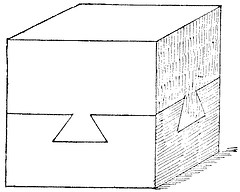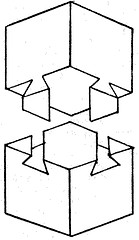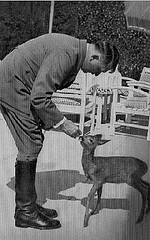Achievements of Carl Herman Unthan (1848-1928), who was born without hands:
- He could feed himself at age 2.
- At age 10 he taught himself the violin.
- At 16 he was sent to a music conservatory.
- At 20 he was performing to full concert halls. During his first performance he replaced a broken string with his toes.
- As a marksman, operating a rifle with his feet, he could shoot the spots out of a playing card.
- He married Antonie Neschta, whom he met while touring Cuba, Mexico, South America, and Europe.
- He moved to the United States and eventually gained citizenship.
In 1925, Unthan published an autobiography, Das Pediscript (not “manuscript,” because he typed it with his toes). It was published in English in 1935, seven years after his death.



